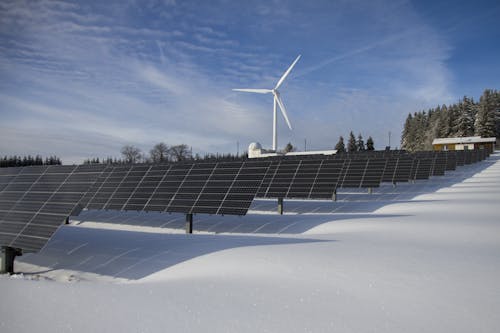Reduce your energy usage and save money with these simple, effective steps to make your home more energy-efficient.
Understanding the Importance of Saving Energy
Saving energy is not only good for your wallet, but it’s also beneficial for the environment. By reducing energy consumption, you can lower your utility bills, reduce carbon emissions, and help preserve natural resources. Fortunately, there are many simple, everyday steps you can take to conserve energy in your home and daily life.
This article will explore various ways to save energy, from small changes in your daily habits to larger improvements in your home’s energy efficiency.

Tips for Saving Energy
1. Turn Off Lights and Electronics When Not in Use
- One of the easiest ways to save energy is by turning off lights, appliances, and electronics when they’re not in use. Remember to turn off lights when leaving a room, and unplug electronics like chargers, TVs, or computers when they are not being used. Many electronics draw power even when turned off, known as “phantom power,” so unplugging them completely can save a significant amount of energy.
2. Use Energy-Efficient Appliances
- Replacing old appliances with energy-efficient models can significantly reduce your energy consumption. Look for appliances with the ENERGY STAR label, which indicates that they meet certain energy-saving standards. Energy-efficient refrigerators, washing machines, dishwashers, and light bulbs can reduce your energy usage without sacrificing performance.
3. Switch to LED Bulbs
- Traditional incandescent bulbs use more energy and have a shorter lifespan compared to LED bulbs. LED bulbs use about 75% less energy and last up to 25 times longer than incandescent bulbs. Replacing your home’s bulbs with LEDs is a simple way to cut down on electricity use.
4. Adjust Your Thermostat
- Heating and cooling your home account for a large portion of your energy consumption. By adjusting your thermostat by just a few degrees, you can reduce your energy usage. In the winter, try lowering the thermostat to 68°F (20°C) while you’re awake and home, and reduce it further when you’re sleeping. In the summer, set the thermostat to 78°F (25°C). Using programmable thermostats can also help automate these adjustments.
5. Seal Gaps and Insulate Your Home
- A significant amount of energy is lost through gaps and leaks in your home, especially around windows, doors, and ducts. Sealing gaps with weatherstripping or caulk and insulating your home can help maintain a more stable temperature and reduce the need for excessive heating or cooling. Proper insulation can also help reduce energy costs over time.
6. Use Cold Water for Laundry
- Heating water for laundry can use a lot of energy. Try washing clothes with cold water instead of hot to save energy. Modern detergents are designed to work well with cold water, and you can still get your clothes clean without using hot water.
7. Cook Efficiently
- When cooking, use energy-efficient methods such as using a microwave instead of an oven or stove, as microwaves use less energy. If you’re using the oven, try to cook multiple dishes at once to take advantage of the heat. Also, consider using a slow cooker or pressure cooker, as these appliances typically use less energy than conventional cooking methods.

8. Optimize Your Water Usage
- Reducing your hot water usage can save both water and energy. Install low-flow showerheads and faucets to reduce water flow without compromising performance. Additionally, try to take shorter showers, turn off the water while brushing your teeth, and consider using a water heater timer to avoid unnecessary heating.
9. Maintain Your HVAC System
- Regular maintenance of your heating and cooling systems is essential for keeping them running efficiently. Change the air filters in your HVAC system regularly to ensure optimal performance. Also, have your system serviced yearly to ensure it’s working as efficiently as possible.
10. Consider Renewable Energy Options
- If possible, consider investing in renewable energy sources such as solar panels or wind turbines. Many homes can benefit from installing solar panels, which can provide clean, renewable energy and even reduce your energy bills. Some regions also offer incentives or rebates for renewable energy installation.
Additional Strategies for Saving Energy
- Use Natural Lighting: Take advantage of daylight by opening blinds and using natural light during the day instead of turning on lights.
- Adjust Your Fridge Settings: Keep your refrigerator at 37°F (3°C) and your freezer at 0°F (-18°C) to reduce energy consumption without affecting food preservation.
- Air Dry Clothes and Dishes: Use the air-dry function on your dishwasher, or hang clothes to dry instead of using a clothes dryer.
Conclusion
By incorporating these energy-saving practices into your daily life, you can significantly reduce your energy consumption, lower your utility bills, and contribute to a more sustainable future. Start with small changes and gradually adopt more energy-efficient habits to make a big impact. Saving energy is an ongoing effort that benefits both your household and the environment.
A Real-Life Experience: My Energy-Efficient Home Makeover
A few months ago, I decided to reduce my energy usage to save money and help the environment. I started with simple changes: turning off lights when not in use, swapping to LED bulbs, and adjusting the thermostat. I also sealed gaps around windows and used cold water for laundry.
After a month, I noticed a decrease in my energy bill. It wasn’t a huge amount, but seeing the savings gave me the motivation to do more. I even installed a smart thermostat and started using a programmable setting for heating and cooling. The changes weren’t too difficult, and now I’m not only saving money but also feeling better about my environmental impact. It’s a small effort with big rewards!





